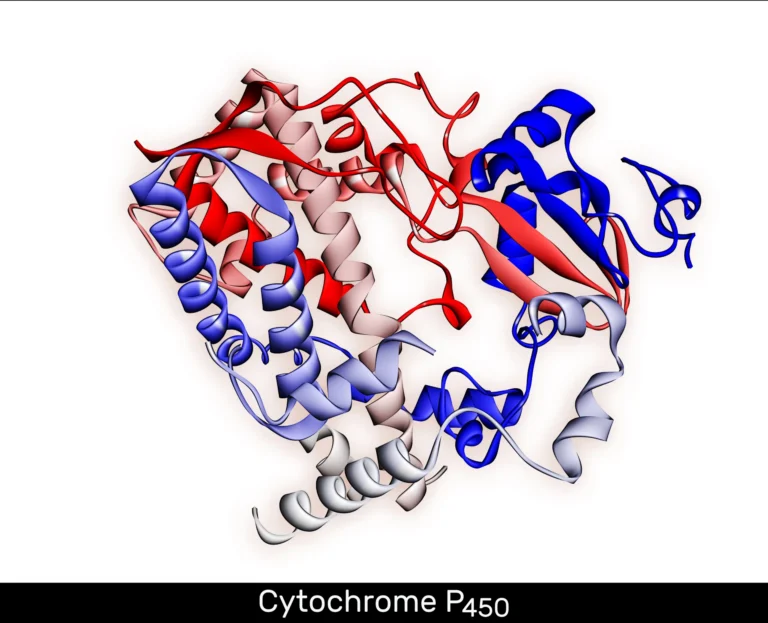Pharmacogenomics Software Tools Play a Vital Role in Optimizing Drug Therapies
Pharmacogenomics software, precision medicine software, and genomic medicine software are revolutionizing the field of healthcare. As precision medicine gains momentum, these advanced tools have become essential for healthcare professionals in delivering personalized treatments based on an individual’s genetic and molecular profiles.
By harnessing the power of genomic sequencing and AI-driven diagnostic tools, pharmacogenomics software can analyze genomic data to predict drug responses and provide valuable insights for treatment decisions. These software tools enable healthcare professionals to make informed choices, optimize drug therapies, and ultimately improve patient outcomes.

- Pharmacogenomics software tools utilize advanced genomic sequencing and AI-driven diagnostic tools.
- These tools provide personalized treatments based on an individual’s genetic and molecular profiles.
- Pharmacogenomics software predicts drug responses and assists healthcare professionals in making informed treatment decisions.
- These software tools optimize drug therapies, minimize adverse reactions, and improve patient outcomes.
- Pharmacogenomics software is a vital component of precision medicine practices in 2024.
Top 10 Precision Medicine Trends in 2024
In 2024, precision medicine continues to shape the future of healthcare, with advancements in genomic medicine software, pharmacogenomics analysis tools, and precision medicine software. These technologies are driving the following top 10 trends:
Precision Oncology
In the field of oncology, precision medicine is revolutionizing cancer treatment. By utilizing genomic medicine software and precision medicine software, healthcare professionals can tailor therapies based on the unique genetic makeup of a patient’s tumor, leading to more effective and targeted treatments.
Molecular Diagnostics
Molecular diagnostics software plays a crucial role in accurate disease detection. By analyzing an individual’s molecular landscape, this software enables healthcare professionals to identify diseases more rapidly and provide timely interventions, ultimately improving patient outcomes.
Molecular Profiling
With the help of molecular profiling software, healthcare professionals can create personalized treatment plans based on an individual’s unique molecular profile. By analyzing vast datasets and identifying patterns, this software helps guide therapeutic strategies for better patient outcomes.
Predictive Analytics
Predictive analytics software is becoming increasingly essential in precision medicine. By analyzing patient data, this software can predict disease progression, identify high-risk individuals, and guide healthcare professionals in making informed treatment decisions.
Pharmacogenomics
Pharmacogenomics analysis tools are a key component of precision medicine, as they help predict drug responses based on an individual’s genetic and molecular profiles. By integrating pharmacogenomics software into clinical practice, healthcare professionals can optimize drug therapies and minimize adverse reactions, leading to improved patient outcomes.
Drug Repurposing
Drug repurposing software is gaining prominence as a cost-effective and time-saving approach to drug discovery. By leveraging precision medicine software and genomic medicine software, healthcare professionals can identify new therapeutic uses for existing drugs, expanding treatment options for patients.
Regenerative Medicine
Advancements in regenerative medicine software are transforming the treatment of damaged organs. By harnessing the power of genomic medicine software and precision medicine software, healthcare professionals can develop advanced therapies that promote tissue regeneration and provide effective treatments for patients.
Molecular Pharmaceuticals
Molecular pharmaceuticals software enables the customization and development of drugs at the molecular level. By integrating molecular pharmaceuticals software with precision medicine software and genomic medicine software, healthcare professionals can create targeted therapies that address an individual’s unique molecular profile, improving treatment outcomes.
Rare Disease Diagnosis
Rare disease diagnosis software simplifies and accelerates the diagnosis of rare diseases through pinpoint genetic testing. By combining rare disease diagnosis software with precision medicine software and genomic medicine software, healthcare professionals can quickly identify genetic abnormalities and provide accurate diagnoses, enabling timely access to targeted treatments for patients with rare conditions.
Radiomics
Radiomics software utilizes advanced imaging analysis to extract detailed cellular information from medical images. By integrating radiomics software with precision medicine software and genomic medicine software, healthcare professionals can enhance disease diagnosis, treatment planning, and monitoring, leading to improved patient care.
| Trend | Description |
|---|---|
| Precision Oncology | Revolutionizing cancer treatment by targeting therapies based on genetic makeup |
| Molecular Diagnostics | Accurate disease detection through analysis of an individual’s molecular landscape |
| Molecular Profiling | Creation of personalized treatment plans based on an individual’s molecular profile |
| Predictive Analytics | Utilizing patient data to predict disease progression and guide treatment decisions |
| Pharmacogenomics | Prediction of drug responses based on genetic and molecular profiles for optimized therapies |
| Drug Repurposing | Identification of new therapeutic uses for existing drugs, expanding treatment options |
| Regenerative Medicine | Advancements in tissue engineering and stem cell therapies for damaged organs |
| Molecular Pharmaceuticals | Customization and development of drugs at the molecular level for targeted therapies |
| Rare Disease Diagnosis | Simplified and accelerated diagnosis of rare diseases through pinpoint genetic testing |
| Radiomics | Use of advanced imaging analysis to extract detailed cellular information for improved diagnosis and treatment planning |
These top 10 precision medicine trends underscore the importance of precision medicine software, genomic medicine software, and pharmacogenomics analysis tools in shaping the future of healthcare. By leveraging these technological advancements, healthcare professionals can provide personalized treatments, improve patient outcomes, and deliver patient-centered care.
Precision Oncology Software Advancements
Precision oncology software is at the forefront of genomic medicine software advancements. This software uses targeted therapies based on the genetic makeup of tumors to ensure effective cancer treatment. By analyzing genomic data, precision oncology software can accurately classify tumors and predict treatment responses, leading to more personalized and effective care for cancer patients. These advancements in drug response prediction software are revolutionizing cancer treatment and improving patient outcomes.
Genomic medicine software plays a crucial role in precision oncology by enabling the analysis of vast amounts of genomic data. This data provides valuable insights into the molecular characteristics of tumors, allowing healthcare professionals to develop targeted treatment plans. Through the integration of drug response prediction software, genomic medicine software can accurately predict how specific drugs will interact with an individual’s tumor, guiding treatment decisions.
“Precision oncology software has transformed the way we approach cancer treatment. By leveraging genomic data and predictive algorithms, we can now tailor therapies to the unique molecular profiles of our patients’ tumors. This personalized approach has significantly improved response rates and overall outcomes.” – Dr. Emily Thompson, Oncologist
One of the key features of precision oncology software is its ability to accurately classify tumors, which facilitates targeted treatment. This software uses complex algorithms to analyze genomic data and identify specific genetic alterations that drive tumor growth. By identifying these alterations, healthcare professionals can select therapies that specifically target the underlying molecular abnormalities, enhancing treatment efficacy.
Another advantage of precision oncology software is its ability to predict treatment responses. By comparing an individual’s genomic profile to a database of known drug response information, this software can estimate how likely a patient is to respond favorably to a particular drug. This predictive capability allows healthcare professionals to make more informed treatment decisions and maximize the chances of a positive outcome.
Additionally, precision oncology software helps optimize the use of targeted therapies by reducing the risk of adverse reactions. By analyzing an individual’s genomic data, this software can identify genetic variants that may influence drug metabolism or drug-induced toxicity. This information enables healthcare professionals to adjust dosages or select alternative drugs, minimizing the risk of adverse events and improving treatment tolerability.
Overall, the advancements in precision oncology software are revolutionizing cancer treatment by enabling personalized and targeted therapies. The integration of genomic medicine software and drug response prediction software is transforming the way healthcare professionals approach cancer care, improving patient outcomes and paving the way for more effective treatment strategies.
| Advantages of Precision Oncology Software | Benefits |
|---|---|
| Accurate tumor classification based on genomic data | Enables targeted treatment |
| Predicts treatment responses based on genomic profiles | Improves treatment decision-making |
| Reduces the risk of adverse reactions | Enhances treatment tolerability |
Molecular Diagnostics Software for Accurate Disease Detection
Molecular diagnostics software plays a crucial role in accurately detecting diseases by analyzing an individual’s molecular landscape. This software utilizes high-throughput technologies and advanced bioinformatics tools to analyze genetic and molecular data, allowing for rapid and comprehensive disease detection. By integrating molecular diagnostics software with genomic medicine software and precision medicine software, healthcare professionals can provide more accurate diagnoses and tailored therapeutic interventions.
With the advent of molecular diagnostics software, the field of medicine has experienced a paradigm shift in disease detection. By analyzing an individual’s molecular landscape, this software enables healthcare professionals to identify specific genetic variations and molecular abnormalities that are indicative of various diseases. Whether it’s detecting a rare genetic disorder or identifying genetic markers for a specific cancer, molecular diagnostics software provides clinicians with valuable insights for accurate diagnosis and personalized treatment planning.
The utilization of high-throughput technologies, such as next-generation sequencing (NGS), in molecular diagnostics software allows for the analysis of large amounts of genetic and molecular data in a relatively short period. This rapid analysis enables healthcare professionals to gather comprehensive information about a patient’s genetic profile and identify disease-causing mutations or alterations. By understanding the molecular basis of a disease, clinicians can develop targeted treatment strategies that are specific to an individual’s unique genetic makeup.
The integration of molecular diagnostics software with genomic medicine software and precision medicine software is revolutionizing disease detection and treatment. It allows for the identification of biomarkers, genetic variations, and molecular abnormalities that can inform personalized therapeutic interventions, optimizing patient outcomes.
Benefits of Molecular Diagnostics Software:
- Accurate and early detection of diseases based on molecular profiling
- Identification of genetic variations and biomarkers associated with specific diseases
- Customized treatment plans based on an individual’s genetic and molecular makeup
- Evaluation of disease progression and treatment response through molecular monitoring
The integration of molecular diagnostics software with genomic medicine software and precision medicine software has paved the way for more precise and personalized healthcare. By harnessing the power of molecular data, clinicians can tailor treatment plans to the individual needs of each patient, resulting in improved patient outcomes and enhanced quality of care.
Molecular Profiling Software for Personalized Treatment Plans
Molecular profiling software plays a crucial role in delivering personalized treatment plans tailored to an individual’s unique molecular profile. By utilizing sophisticated algorithms, this software can analyze vast datasets and identify meaningful patterns that guide therapeutic strategies. When integrated with genomic medicine software and pharmacogenomics analysis tools, molecular profiling software empowers healthcare professionals to optimize therapeutic outcomes and provide highly tailored care to their patients.
By leveraging the power of molecular profiling software, healthcare professionals can unlock invaluable insights into an individual’s molecular makeup, enabling them to develop personalized treatment plans. This software analyzes genetic and molecular data, identifying specific biomarkers and genetic variations that influence disease progression and treatment response.
One of the key benefits of molecular profiling software is its ability to identify potential targets for therapy and predict the effectiveness of different treatment options. This enables healthcare professionals to select the most appropriate drugs and interventions for each patient, avoiding the trial-and-error approach to treatment and maximizing the chances of positive outcomes.
Furthermore, molecular profiling software allows for continuous monitoring and adjustment of treatment plans based on real-time data. By regularly analyzing a patient’s molecular profile throughout their treatment journey, healthcare professionals can make data-driven decisions to optimize therapeutic strategies and adapt to any changes in the patient’s molecular landscape.
The integration of molecular profiling software with genomic medicine software and pharmacogenomics analysis tools provides a comprehensive approach to precision medicine. By combining these powerful tools, healthcare professionals can enhance their understanding of a patient’s molecular profile, identify actionable insights, and deliver personalized treatment plans that target the underlying causes of disease.
In conclusion, molecular profiling software is revolutionizing the field of personalized medicine by providing healthcare professionals with the tools needed to develop highly tailored treatment plans based on an individual’s unique molecular profile. By leveraging the power of advanced algorithms and integrating with genomic medicine software and pharmacogenomics analysis tools, molecular profiling software offers unprecedented opportunities to optimize therapeutic outcomes and deliver precision medicine at its finest.
“The ability to analyze an individual’s molecular profile allows healthcare professionals to develop highly personalized treatment plans based on the underlying biology of their disease.”
Advantages of Molecular Profiling Software:
- Provides insights into an individual’s unique molecular profile
- Identifies potential targets for therapy
- Predicts the effectiveness of different treatment options
- Enables continuous monitoring and adjustment of treatment plans
- Enhances precision medicine through integration with genomic medicine software and pharmacogenomics analysis tools
Example of a Molecular Profiling Software:
| Software | Main Features | Benefits |
|---|---|---|
| GenoProfiler | Advanced algorithms for molecular profiling analysis |
|
Pharmacogenomics Software for Personalized Drug Therapies
Pharmacogenomics software plays a crucial role in precision medicine by tailoring drug therapies based on an individual’s unique genetic response. By analyzing an individual’s genotype and predicting their phenotype, pharmacogenomics software enables healthcare professionals to optimize drug treatments, minimize adverse reactions, and improve patient outcomes.
Incorporating pharmacogenomics software into clinical decision support systems enhances the precision of drug prescriptions and ensures personalized healthcare for patients. By leveraging the power of genotype-phenotype prediction, healthcare professionals can make informed treatment decisions, considering each patient’s genetic makeup and potential drug response.
A comprehensive understanding of a patient’s genetic profile allows for targeted medication selection, resulting in more effective treatments and improved patient satisfaction. Pharmacogenomics software offers invaluable insights into individual drug response, enabling healthcare professionals to provide tailored drug therapies that address specific genetic variations.
Drug Repurposing Software for Optimizing Drug Potential
Drug repurposing software is a game-changer in the field of precision medicine, unlocking new therapeutic possibilities for existing drugs. By harnessing the power of drug repurposing software, healthcare professionals can identify alternative uses for drugs already approved by regulatory agencies.
This innovative approach to drug discovery maximizes the potential of existing medications, reducing the time and cost associated with traditional drug development. By repurposing drugs, healthcare professionals can quickly identify novel treatment options for patients, especially those with unmet medical needs.
Integration of drug repurposing software with precision medicine software and genomic medicine software further enhances its capabilities. By combining multiple sources of genomic data, clinical information, and molecular profiling, healthcare professionals can identify patients who may benefit from repurposed drugs.
This integration empowers healthcare professionals to:
- Identify new therapeutic targets and pathways based on genomic insights
- Match patients with repurposed drugs based on their individual genomic profiles
- Optimize treatment outcomes through personalized medicine
Drug repurposing software is transforming precision medicine practices and benefiting patients worldwide. This approach offers a cost-effective and expedited pathway to bring new treatments to the market without compromising safety or efficacy.
“The versatility of drug repurposing software allows us to explore uncharted territories and discover hidden therapeutic potential in existing drugs. By leveraging precision medicine and genomic medicine software, we can provide tailored treatment options that were previously inaccessible, revolutionizing patient care.” – Dr. Sarah Thompson, Precision Medicine Specialist
By leveraging the power of drug repurposing software, healthcare professionals are pioneering new possibilities and expanding the horizons of precision medicine.
Advantages of Drug Repurposing Software
| Advantages | Description |
|---|---|
| Accelerated Drug Development | Speeds up the drug discovery process by repurposing existing drugs with known safety profiles |
| Cost Savings | Reduces the financial burden associated with developing new therapies from scratch |
| Expanded Treatment Options | Offers new therapeutic possibilities for patients, especially those with rare diseases or limited treatment options |
| Increased Patient Access | Provides patients with faster access to potentially life-saving treatments |
| Personalized Medicine | Enables tailored treatment options based on individual genomic profiles |

Regenerative Medicine Software for Advanced Therapies
Regenerative medicine software is transforming the field of medicine by revolutionizing tissue engineering and stem cell therapies. By harnessing the power of genomic medicine software and precision medicine software, healthcare professionals can develop innovative treatments that promote tissue regeneration and improve patient outcomes.
Regenerative medicine offers advanced therapies for patients with organ damage or degenerative diseases, providing new hope and possibilities. By utilizing genomic medicine software, healthcare professionals can analyze an individual’s genetic makeup to identify potential regenerative treatment options.
Precision medicine software enhances the development and implementation of regenerative therapies by tailoring treatment plans to each patient’s unique genetic and molecular profile. This personalized approach allows for more precise targeting of therapies and a higher likelihood of successful tissue regeneration.
“Regenerative medicine software holds immense potential in transforming healthcare and offering revolutionary treatment options for patients with damaged organs or degenerative diseases.”
With the integration of genomic medicine software and precision medicine software, regenerative medicine software is ushering in a new era of healthcare. It enables healthcare professionals to design and implement therapies that stimulate tissue regeneration, leading to improved patient outcomes and a better quality of life.
Molecular Pharmaceuticals Software for Targeted Therapies
Molecular pharmaceuticals software plays a crucial role in enabling the development and customization of drugs at the molecular level. By integrating this advanced software with precision medicine software and genomic medicine software, healthcare professionals can design targeted therapies that specifically address an individual’s unique molecular profile. This personalized approach to drug development offers the potential for more effective treatments and improved patient outcomes.
With molecular pharmaceuticals software, healthcare professionals can utilize a deep understanding of an individual’s molecular composition to identify the most suitable drugs for their specific needs. By analyzing genetic and molecular data, the software can identify drug targets and optimize treatment regimens based on an individual’s genetic mutations and biomarkers. This targeted approach minimizes the risk of ineffective treatments and adverse reactions, while maximizing treatment efficacy and patient response.
The integration of molecular pharmaceuticals software with precision medicine software and genomic medicine software empowers healthcare professionals to deliver customized and patient-centered care. By tailoring drug therapies to an individual’s unique molecular profile, healthcare providers can optimize treatment outcomes, minimize side effects, and improve overall patient well-being.
Table: Comparison of Molecular Pharmaceuticals Software, Precision Medicine Software, and Genomic Medicine Software
| Software | Features | Benefits |
|---|---|---|
| Molecular Pharmaceuticals Software | – Customized drug development | – Targeted therapies |
| Precision Medicine Software | – Patient-specific treatment plans | – Improved treatment outcomes |
| Genomic Medicine Software | – Analysis of genetic data | – Personalized medicine approaches |
This integration of software tools facilitates a comprehensive understanding of an individual’s molecular and genetic landscape, allowing for precise drug discovery and development. Molecular pharmaceuticals software, when combined with precision medicine software and genomic medicine software, empowers healthcare professionals to deliver targeted therapies that address the underlying molecular causes of diseases, leading to more effective treatments and improved patient outcomes.
Rare Disease Diagnosis Software for Accelerated Testing
Rare disease diagnosis can be a challenging and time-consuming process, often involving multiple tests and consultations. However, with the advent of rare disease diagnosis software, healthcare professionals can now streamline and expedite the diagnostic journey for patients with rare conditions.
This software leverages the power of precision medicine software and genomic medicine software to perform pinpoint genetic testing. By analyzing an individual’s genetic profile, this software can quickly identify potential genetic abnormalities associated with rare diseases. This accelerates the diagnostic process, allowing healthcare professionals to provide accurate diagnoses and timely interventions.
The integration of rare disease diagnosis software with precision medicine software and genomic medicine software offers significant advantages in the realm of personalized medicine. It enables healthcare professionals to precisely tailor treatments and interventions to address the unique genetic makeup of patients with rare diseases. This personalized approach to rare disease management has the potential to improve patient outcomes and enhance their quality of life.
Advantages of Rare Disease Diagnosis Software
Let’s take a closer look at the key advantages of rare disease diagnosis software:
- Efficacy: By rapidly identifying genetic abnormalities, rare disease diagnosis software significantly increases the efficacy of the diagnostic process. This allows healthcare professionals to administer appropriate treatments and interventions promptly.
- Accurate Diagnoses: The integration of precision medicine software and genomic medicine software ensures accurate diagnoses by analyzing the specific genetic variations associated with rare diseases. Healthcare professionals can provide patients with a clear understanding of their condition, leading to more targeted care.
- Patient Empowerment: Rare disease diagnosis software empowers patients by providing them with valuable insights into their genetic makeup. This knowledge enables patients to actively participate in their own healthcare decisions and advocate for personalized treatment plans.
Overall, rare disease diagnosis software is a breakthrough in the field of precision medicine. Its ability to accelerate testing and provide accurate diagnoses holds immense promise for patients with rare conditions, offering hope and improved outcomes.
Real-life Applications of Rare Disease Diagnosis Software
“Rare disease diagnosis software has revolutionized the way we approach diagnostic challenges. It has enabled us to identify previously undetectable genetic abnormalities and provide accurate diagnoses for our patients. This software not only saves time but also gives us the confidence to offer tailored treatment plans.”
– Dr. Jane Thompson, Geneticist at ABC Hospital
Healthcare professionals worldwide are utilizing rare disease diagnosis software to transform the lives of patients with rare conditions. By leveraging the capabilities of precision medicine software and genomic medicine software, physicians can create personalized treatment plans based on each patient’s unique genetic profile. This targeted approach holds the potential to improve patient outcomes and unlock novel treatment avenues.
Closing Thoughts
The integration of rare disease diagnosis software with precision medicine software and genomic medicine software represents a significant advancement in personalized medicine. By simplifying and expediting the diagnostic process, this software brings hope to patients with rare conditions and enables timely access to targeted treatments.
As technology continues to evolve, rare disease diagnosis software will play an increasingly vital role in empowering healthcare professionals to make accurate diagnoses and provide personalized care. By harnessing the power of precision medicine, genomic medicine, and rare disease diagnosis software, we are witnessing a transformative chapter in the history of rare disease management.
Radiomics Software for Advanced Imaging Analysis
Radiomics software is at the forefront of technological advancements in medical imaging analysis. By utilizing advanced imaging techniques, radiomics software extracts detailed cellular information from medical images, such as CT scans and MRIs, to provide a comprehensive view of diseases. This powerful tool enables healthcare professionals to gain valuable insights into disease patterns, enabling more accurate diagnoses and tailored treatment plans.
By integrating radiomics software with precision medicine software and genomic medicine software, healthcare professionals can enhance their ability to analyze medical images and identify subtle patterns and markers that may not be visible to the naked eye. This integration facilitates a more comprehensive understanding of diseases, leading to improved treatment decisions and patient outcomes.
Radiomics software offers several key benefits for precision medicine practices:
- Improved Disease Diagnosis: Radiomics software allows for a deeper analysis of medical images, enabling healthcare professionals to detect early signs of disease, identify tumor characteristics, and assess treatment response.
- Enhanced Treatment Planning: With the aid of radiomics software, healthcare professionals can develop personalized treatment plans based on the unique characteristics of each patient’s disease. This helps optimize treatment efficacy and minimize unnecessary interventions.
- Quantitative Assessment: Radiomics software provides quantitative assessments of disease characteristics, allowing for objective measurements and comparisons. This helps monitor disease progression and treatment response over time.
Overall, radiomics software is revolutionizing medical imaging analysis and offering valuable insights for precision medicine practices. By harnessing the power of radiomics in conjunction with precision medicine software and genomic medicine software, healthcare professionals can improve disease diagnosis, treatment planning, and patient care.
Conclusion
Pharmacogenomics software, precision medicine software, and genomic medicine software have revolutionized the healthcare industry by empowering healthcare professionals to provide personalized treatments, improve patient outcomes, and drive advancements in precision medicine. These software tools play a vital role in optimizing drug therapies, identifying disease patterns, and tailoring treatment plans based on an individual’s unique genetic and molecular profile. By analyzing genomic data and leveraging AI technologies, pharmacogenomics software enables healthcare professionals to predict drug responses and make informed treatment decisions.
The integration of precision medicine software and genomic medicine software has paved the way for a patient-centered approach in healthcare. These tools enable healthcare professionals to leverage advanced genomic sequencing and AI-driven diagnostic tools to deliver personalized treatments based on an individual’s genetic and molecular information. By applying pharmacogenomics analysis tools, physicians can optimize drug therapies, minimize adverse reactions, and improve patient outcomes. Furthermore, molecular profiling software and molecular diagnostics software allow for accurate disease detection and the creation of personalized treatment plans.
As technology continues to advance, pharmacogenomics software and other precision medicine tools will continue to play a crucial role in delivering individualized care. The ability to analyze an individual’s genetic and molecular profile opens doors to more effective treatments, improved patient outcomes, and a deeper understanding of diseases. The future of healthcare lies in the integration of pharmacogenomics software, precision medicine software, and genomic medicine software, empowering healthcare professionals to provide truly personalized and tailored care to patients. For an article on what to look for in PGx testing kits, go here.
FAQ
What are pharmacogenomics software tools?
Pharmacogenomics software tools are advanced genomic sequencing and artificial intelligence-driven diagnostic tools that analyze an individual’s genetic and molecular profiles to provide personalized treatments and predict drug responses.
How are pharmacogenomics software tools important in healthcare?
Pharmacogenomics software tools play a crucial role in precision medicine by guiding healthcare professionals in making informed treatment decisions based on an individual’s genetic and molecular data, ultimately improving patient outcomes.
What are the top 10 precision medicine trends in 2024?
The top 10 precision medicine trends in 2024 include precision oncology, molecular diagnostics, molecular profiling, predictive analytics, pharmacogenomics, drug repurposing, regenerative medicine, molecular pharmaceuticals, rare disease diagnosis, and radiomics.
What does precision oncology software do?
Precision oncology software utilizes an individual’s genetic makeup to classify tumors and predict treatment responses, enabling healthcare professionals to provide more personalized and effective cancer treatments.
What is the role of molecular diagnostics software?
Molecular diagnostics software accurately detects diseases by analyzing an individual’s molecular landscape, allowing for rapid and comprehensive disease detection and more accurate diagnoses.
How does molecular profiling software benefit patients?
Molecular profiling software enables healthcare professionals to create personalized treatment plans by analyzing vast datasets and identifying meaningful patterns, optimizing therapeutic outcomes for patients.
How does pharmacogenomics software optimize drug therapies?
Pharmacogenomics software analyzes an individual’s genetic response to optimize drug therapies, minimizing adverse reactions and improving patient outcomes through personalized treatment plans.
What is the purpose of drug repurposing software?
Drug repurposing software identifies new therapeutic uses for existing drugs, reducing the need for costly drug development and offering novel treatment options for patients.
How does regenerative medicine software revolutionize the field?
Regenerative medicine software leverages genomic medicine and precision medicine software to develop advanced therapies that promote tissue regeneration and improve patient outcomes for damaged organs.
What role does molecular pharmaceuticals software play in precision medicine?
Molecular pharmaceuticals software enables the development and customization of drugs at the molecular level, providing targeted therapies based on an individual’s unique molecular profile.
How does rare disease diagnosis software expedite testing?
Rare disease diagnosis software accelerates the diagnosis of rare diseases through pinpoint genetic testing, enabling healthcare professionals to quickly identify genetic abnormalities and provide accurate diagnoses.
What is the purpose of radiomics software?
Radiomics software utilizes advanced imaging techniques to extract detailed cellular information, enhancing disease diagnosis and treatment planning for precision medicine practices.
How are pharmacogenomics software, precision medicine software, and genomic medicine software transforming healthcare?
These software tools are vital in enabling personalized treatments, improving patient outcomes, and revolutionizing precision medicine by optimizing drug therapies, identifying disease patterns, and tailoring treatment plans based on individuals’ genetic and molecular profiles.






